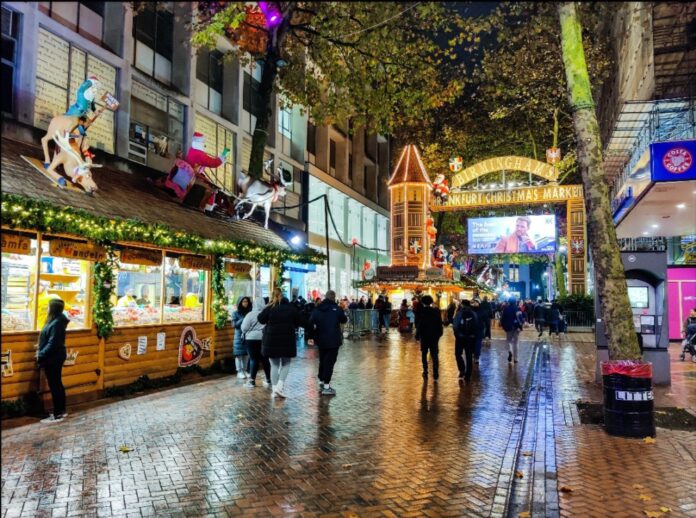Story makes John Lewis ad look like a Greek tragedy
UK mobile network operator EE has added 150 new UK locations to its 5G network, with major cities like Birmingham, Belfast and Edinburgh among existing locations to benefit from new masts, street furniture and other broadcasting equipment. The operator said it has concentrated in time with the arrival of the festive shopping period and it has targeted areas which now run European style outdoor markets.
The mobile operator referenced a listing of festive market in the Radio Times to plan additions to coverage in towns such as Nottingham, home to the Winter Wonderland and Manchester, home to a diverse range of holiday season fare). Other market town beneficiaries include Bath, Newcastle, Padstow and Lincoln.
“There is nothing like a Christmas market and the connectivity is crucial for customers and traders alike,” said Greg McCall, Chief Networks Officer, BT Group. “As we continue to invest in and expand our 5G network, we’re thrilled to be powering Christmas market destinations across more of the UK.”
The EE mobile network coverage checker gives a full list of the new additions, but some of the telco’s most creative work goes unrecognised. In Lincoln, the BT Group (owner of EE) will disguise broadcasting equipment as six foot (1.8m) screens showing adverts, according to the BCC’s according to the Local Democracy Reporting Service. BT Group said the hubs would boost broadband and 5G connectivity in the area and would offer free phone calls to anywhere in the UK. The company has applied to the City of Lincoln Council for permission to install the hubs. Documents seen by the council describe the street hubs as “the next evolution of public connectivity”.
As well as advertisements the screens would also include a digital version of the BT phonebook, local weather information, maps and a dedicated 999 call button. A report to the council said modern cities required digital connectivity provision “both for residents and visitors, to enable their day to day living and enjoyment of recreational activities”.
The report said to enable the service to be provided without a fee, advertisements on either side of the units would be required and were “an intrinsic part of the development”. Local councils would be given around 438 hours a year to share their messages, it added.



